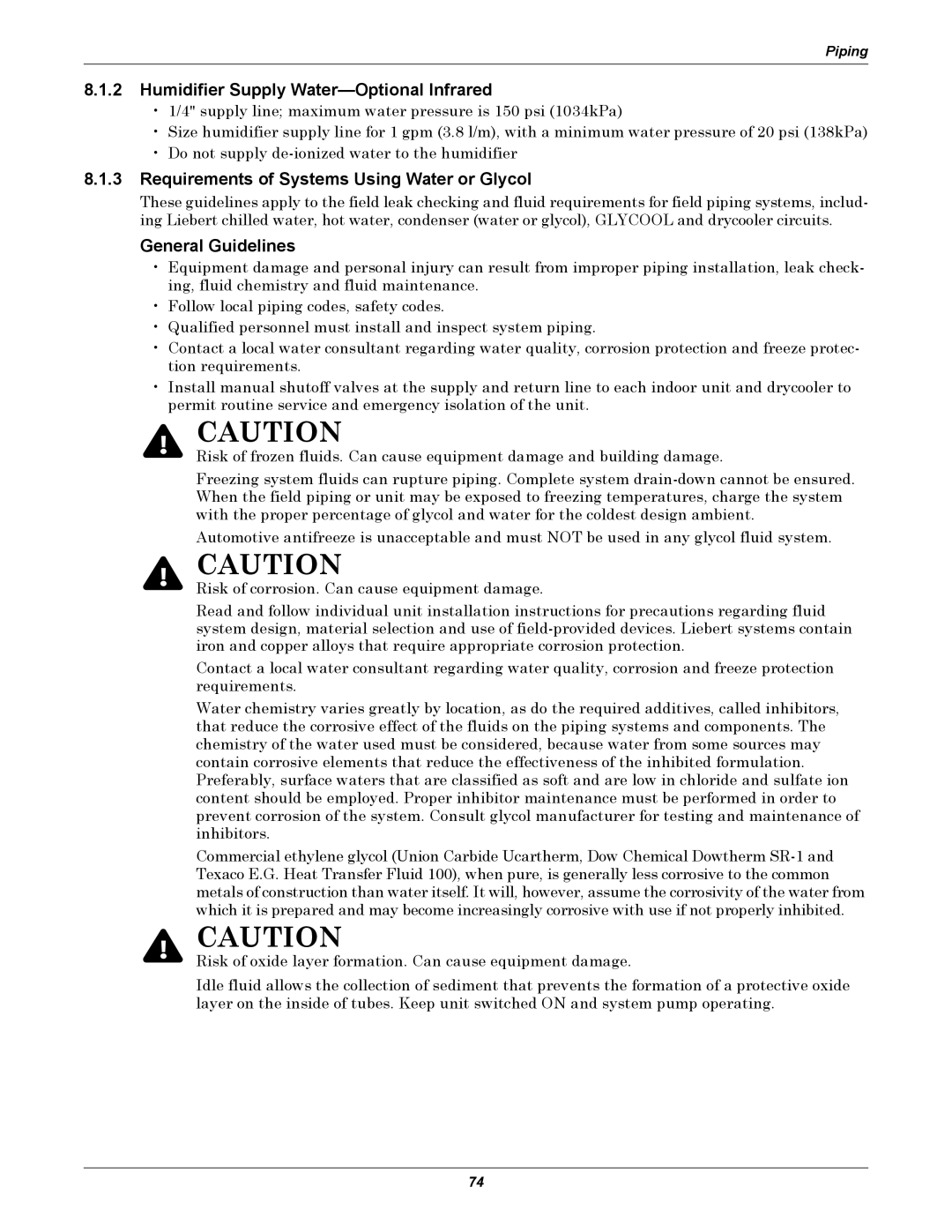
Piping
8.1.2Humidifier Supply Water—Optional Infrared
•1/4" supply line; maximum water pressure is 150 psi (1034kPa)
•Size humidifier supply line for 1 gpm (3.8 l/m), with a minimum water pressure of 20 psi (138kPa)
•Do not supply
8.1.3Requirements of Systems Using Water or Glycol
These guidelines apply to the field leak checking and fluid requirements for field piping systems, includ- ing Liebert chilled water, hot water, condenser (water or glycol), GLYCOOL and drycooler circuits.
General Guidelines
•Equipment damage and personal injury can result from improper piping installation, leak check- ing, fluid chemistry and fluid maintenance.
•Follow local piping codes, safety codes.
•Qualified personnel must install and inspect system piping.
•Contact a local water consultant regarding water quality, corrosion protection and freeze protec- tion requirements.
•Install manual shutoff valves at the supply and return line to each indoor unit and drycooler to permit routine service and emergency isolation of the unit.
! CAUTION
Risk of frozen fluids. Can cause equipment damage and building damage.
Freezing system fluids can rupture piping. Complete system
Automotive antifreeze is unacceptable and must NOT be used in any glycol fluid system.
! CAUTION
Risk of corrosion. Can cause equipment damage.
Read and follow individual unit installation instructions for precautions regarding fluid system design, material selection and use of
Contact a local water consultant regarding water quality, corrosion and freeze protection requirements.
Water chemistry varies greatly by location, as do the required additives, called inhibitors, that reduce the corrosive effect of the fluids on the piping systems and components. The chemistry of the water used must be considered, because water from some sources may contain corrosive elements that reduce the effectiveness of the inhibited formulation. Preferably, surface waters that are classified as soft and are low in chloride and sulfate ion content should be employed. Proper inhibitor maintenance must be performed in order to prevent corrosion of the system. Consult glycol manufacturer for testing and maintenance of inhibitors.
Commercial ethylene glycol (Union Carbide Ucartherm, Dow Chemical Dowtherm
! CAUTION
Risk of oxide layer formation. Can cause equipment damage.
Idle fluid allows the collection of sediment that prevents the formation of a protective oxide layer on the inside of tubes. Keep unit switched ON and system pump operating.
74
